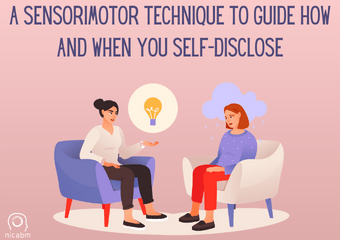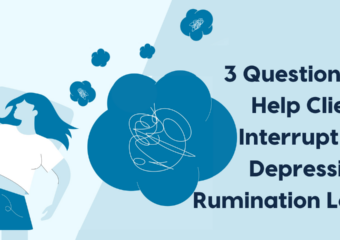In the aftermath of trauma, getting to the heart of your client’s pain can be complex – especially when that client is caught in a defense response pattern that trauma researchers often identify as please and appease. For many clients, chronic people-pleasing bleeds into every relationship. . . . . . and when that includes […]
Four Key Components of Confronting a Narcissistic Personality – with Ellyn Bader, PhD
When it comes to confronting a client’s pattern of narcissism or grandiosity, it’s safe to say you might meet with some pushback along the way. So to up your chances of success (and also mitigate the risk of damage to the therapeutic relationship), it can be helpful to pad your treatment plan with a few […]
A Sensorimotor Technique to Guide How and When You Self-Disclose
When it comes to self-disclosure in our clinical work, it can be critical to weigh very carefully just how and when we use it . . . . . . especially in cases where a client relays an experience that bumps up against a painful or overwhelming experience, we may have had ourselves. But according […]
3 Questions to Help Clients Interrupt the Depression-Rumination Loop
Clients who ruminate often think of it as a helpful problem-solving tool – that if they dwell on a problem long enough, they’ll gain new insight into how to fix it. But as we know, rumination can keep clients stuck in cycles of depression and self-doubt. So, in the video below, Christine Padesky, PhD […]
Can Self-Care Be a Form of Protest? – with Eboni Webb, PsyD
For many people of color, the fight for racial justice and equality is a lifelong struggle . . . . . . but the effort required to constantly work toward social change can easily consume a person – especially when they continue to witness traumatic acts of injustice. So in the video below, Eboni Webb, […]




